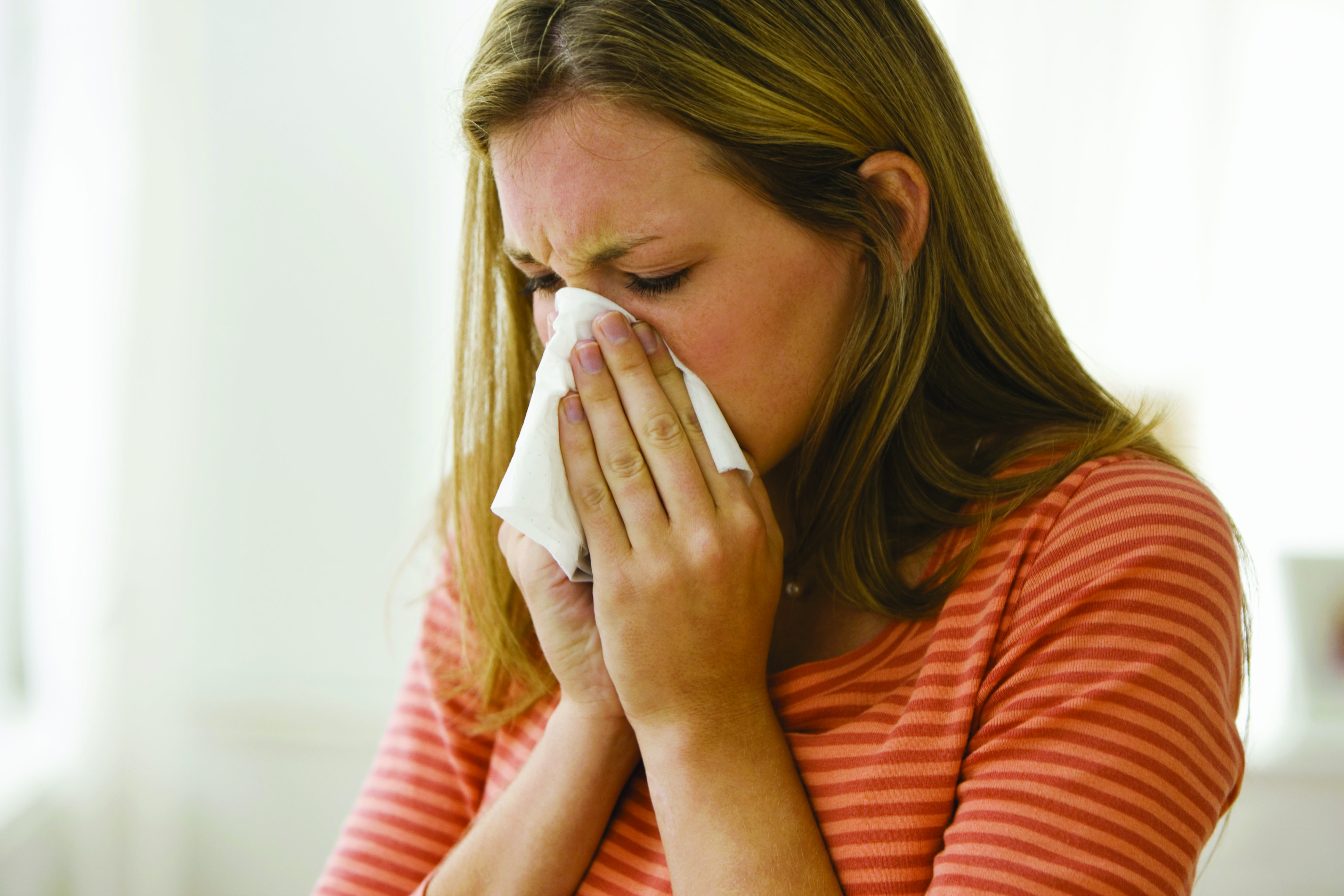As the weather changes, we are inevitably surrounded by sniffles and coughs, but what causes these symptoms and when is it time to head to your healthcare provider? Most often caused by viruses, common upper respiratory illnesses are associated with runny nose, sore throat, and cough. Viruses differ from bacteria in that they are not treated with antibiotics. Antibiotics can only treat bacterial infections.
Common Misconceptions
There are many misconceptions when determining whether a virus or bacteria is the cause of an infection.
• Green mucus means it’s bacterial. When you have an infection, the immune system sends white blood cells to fight. These cells are what change the color of the mucus and can be present for viral or bacterial infections.
• Viruses don’t cause fever. Some viruses such as influenza are actually characterized by a high fever. Fever is just the body’s immune response to an infection.
• I always end up needing antibiotics when I get this, so I want to catch it early.Unfortunately, most infections that do end up requiring antibiotics begin with a viral infection. Since you’re already sick, you’re at risk of getting a secondary bacterial infection. In the early phases of the illness, no bacteria is present to treat, so antibiotics do not work.
• I want to treat this early so I don’t get bronchitis.Over 90 percent of bronchitis cases are caused by a virus, so early treatment with antibiotics is not effective.
• Viral infections only last for three to five days. Viral infections can actually last as long as seven to 14 days.
Treatment
Viral infections do not respond to antibiotics. Your immune system has to get rid of the virus on its own, which is why it varies for every person. Treatment for viral infections is centered on treating the symptoms. It’s important to maintain good fluid intake to avoid dehydration. For fever and sore throat, anti-inflammatory medications such as Ibuprofen are helpful. A sore throat can also be treated with warm saltwater gargles and throat lozenges. Over the counter cough syrup and menthol can be helpful for cough.
Prevention
A healthy immune system and good hygiene are essential in avoiding illness. Eating a healthy diet, exercising, and getting enough rest will boost your immune system. It’s important to wash your hands frequently, especially before eating. Unfortunately, there is no vaccine for the common cold. However, you can protect yourself from influenza (the flu) with an annual influenza vaccine. Although it is still possible to get influenza after getting the vaccine, the influenza vaccine does not cause the flu. In most cases, if you get the vaccine and are infected, the illness is not as severe.
When to See Your Healthcare Provider
•Your symptoms are not improving after a week.
•Your symptoms get better and then worse again.
•Feeling short of breath or wheezing.
•Prolonged fever over 102°F.
•Severe or persistent vomiting




Comments